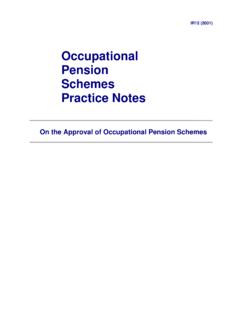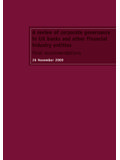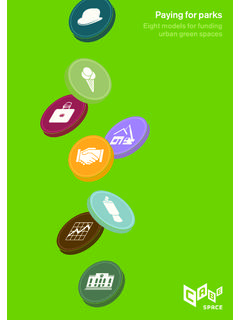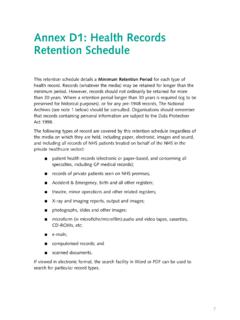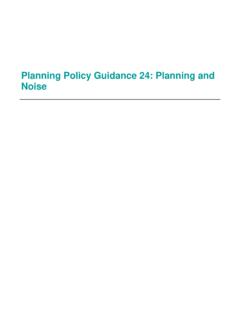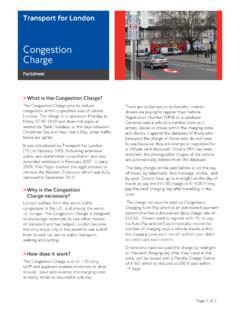Transcription of An Introduction to Public Procurement - The National Archives
1 An Introduction to Public Procurement Contents 1. Purpose of the guidance 3. 2. Background: Why good Procurement matters 3. 3. Strategic context of Procurement 4. 4. Procurement processes and the spectrum of activities 6. 5. Collaboration 7. 6. Complex project Procurement 8. 7. Managing competition issues 14. 8. Why value for money matters 16. 9. Delivering excellent Procurement 16. 10. The importance of capabilities 18. 11. Ethics and propriety 19. Appendix: Key roles and responsibilities 20. An Introduction to Public Procurement 3. 1. Purpose of the guidance The Public sector spends over 150 billion a year on the goods and services needed to deliver Public services.
2 To achieve value for money (VFM) for the taxpayer, effectively managed procurements . properly planned and executed are essential. This guidance sets out the key concepts and principles of good Procurement and is intended for senior officials with limited experience of Public Procurement . Although it focuses primarily on activities in central departments and closely associated bodies, it is also relevant where central government provides commercial governance, advice or support to what is described here as the wider network' ( all devolved Public sector bodies, including those in health, education, local government and the emergency services).
3 The Introduction is a component of OGC's Policy and Standards Framework which covers all the key Procurement policies to which contracting authorities are expected to adhere as part of Transforming Government Procurement , which set out, in 2007, the Government's priorities for Public Procurement reform. Much of the Introduction is relevant to the process of Commissioning . Commissioning is where the Public sector decides the services or service outcomes ( in adult social care or children's services). or the products that it needs, acquires them and makes sure that they meet requirements. There is much debate about whether commissioning is synonymous with Procurement or merely includes Procurement .
4 What is certain is that for Procurement to be effective as a business tool, organisations need to cover the same activities as commissioning identification of needs, acquisition and management of benefits all of which are discussed in this document. 2. Background: Why good Procurement matters Public Procurement is the process whereby Public sector organisations acquire goods, services and works from third parties. It includes much that supports the work of government and ranges from routine items ( stationery, temporary office staff, furniture or printed forms), to complex spend areas ( construction, Private Finance Initiative projects, aircraft carriers or support to major change initiatives).
5 It also includes a growing spend where the private and third sectors provide key services directly to citizens in areas such as welfare-to-work, further education, social care and health. Such services may also be provided by the Public sector directly, and in some cases even this Public provision can be handled through Procurement mechanisms. A Public body may bid for government work against private sector firms through a formal competitive process. An Introduction to Public Procurement 4. Why Procurement Matters Effective Public Procurement is essential for good Public services and good government. The Public sector in the UK spends well over 150 billion a year on the goods and services necessary to deliver Public services.
6 Government must apply the highest professional standards when it spends this money on behalf of taxpayers, to ensure it gets a good deal and to provide appropriate and necessary goods and services to the quality required to meet user needs. The Procurement process spans a life cycle from identification of the need, through the selection of suppliers, to post-contract award management, including disposal. There is a duty on procurers in central government to apply the key principles of Public Procurement . These require the delivery of value for money (VFM), appropriate quality and service to meet business needs, and appropriate governance (ie, adherence to HM Treasury rules concerning the use of Public money in Procurement ) as described in Managing Public Money, Annex Public sector Procurement is governed by the UK regulations that implement the EU Procurement directives.
7 These apply to the majority of procurements with a total value over a specified threshold. Procurements which are below threshold are not covered by the UK regulations, but are still subject to EU Treaty principles. This is described in more detail in the Policy and Standards Framework. Contracting authorities need to deploy strong personal and organisational commercial leadership, and, in most cases, Procurement activities need to be led by professionally trained staff. The Procurement approach and procedure must be relevant and appropriate for what is being purchased, and the market must be able to provide it at an affordable price.
8 Contracting authorities are required to promote sustainable development objectives through Procurement in a way that is consistent with value for money and the legal framework for Public Procurement . In particular, they must contribute to achievement of the targets and commitments on Sustainable Operations of the Government Estate and in the Government's Sustainable Procurement Action Plan. Authorities should also incorporate social issues into procurements where they are relevant and proportionate to the subject matter of the contract. For further information on delivering other policy objectives through Procurement please refer to the Policy and Standards Framework.
9 Fig. 1: Why Procurement Matters 3. Strategic context of Procurement The starting points for government's activities are policy outcomes. These are the desired deliverables' . a tolerant, safe society; well-educated citizens and so on. Government then develops policies to meet these outcomes and engages in operational activities to deliver them. It is not always obvious how Procurement contributes to these policies and outcomes. It may be indirect for example, buying stationery. In this case, Procurement is supporting staff who are key to policy delivery. In other cases, the link between policy and Procurement is clearer; it is hard to imagine, for example, well-educated citizens without school buildings and equipment, which all have to be procured.
10 In some cases, it is the actual development or delivery of the policy outcomes that are procured . the market provides the solution and delivers it to citizens. Here, Procurement is absolutely central. 5. Often, Procurement is only one of a number of mechanisms which could be used to deliver government policy. For example, rather than procuring a policy-delivery solution, the Government could introduce a new tax or subsidy; it could regulate or prohibit something; it could use persuasion techniques through advertising or marketing to influence behaviours in society. If Procurement is selected as the most desirable policy delivery mechanism, this should be justified against the other options.

